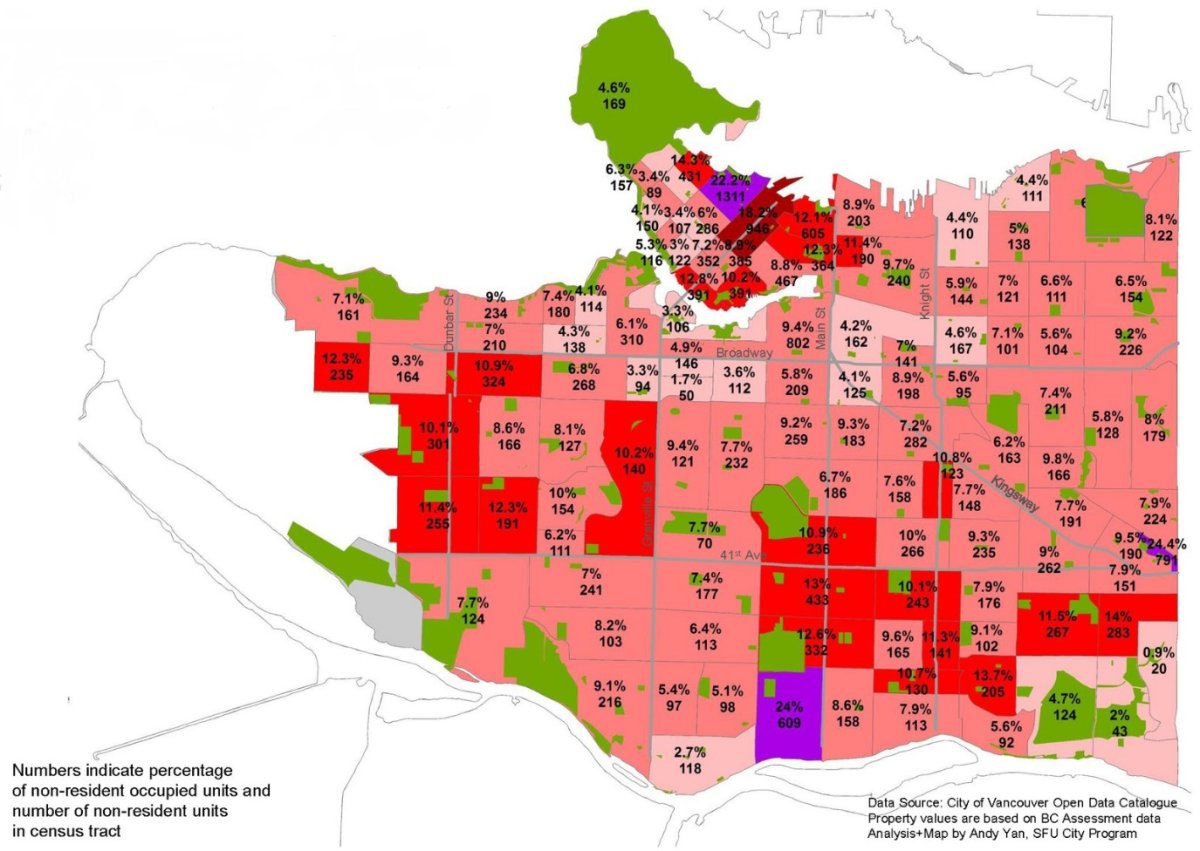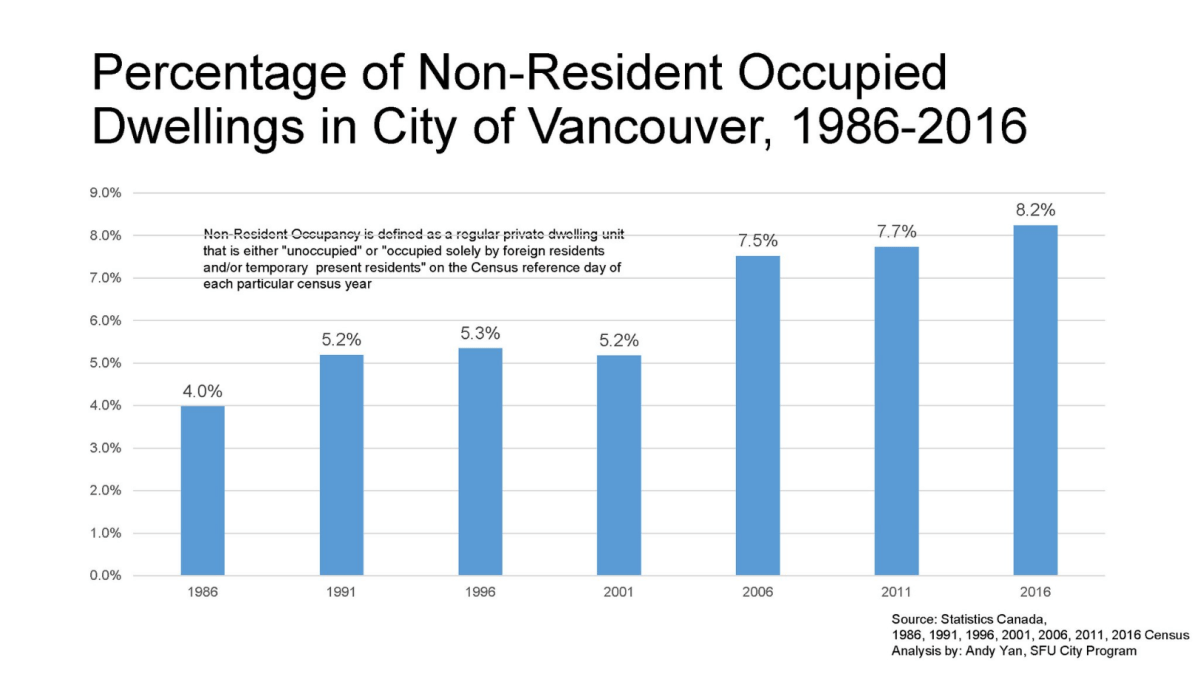The number of properties that would potentially be subject to an empty homes tax grew by over 12,000 units in Vancouver in the past 15 years, according to a report to a city Policy and Strategic Priorities meeting that’s set to take place next week.

The report by Gil Kelley, the city’s general manager of planning, used data from the 2016 Census to show that the city had 25,495 dwelling units that were either unoccupied or occupied by temporary or foreign residents on May 10, 2016, which was the Census Day last year.
Coverage of Vancouver empty homes on Globalnews.ca:
That was up from 22,170 in 2011 and 12,885 in 2001, for total growth of 12,610 dwelling units, or an increase of about 98 per cent in the last 15 years.
The numbers appeared in a report that aimed to assess the number of homes that would be subject to the city’s Empty Homes Tax, a one per cent tax on the assessed value of any units that aren’t principal residences occupied for at least six months of the year, that are rented out for at least six months or that are eligible for other exemptions.
To put that in perspective: an empty home with an assessed value of $400,000 would result in a tax of $4,000. That would be more than the homeowner would owe in property taxes, which would total $1,021,96 in 2017, without considering the B.C. Home Owner Grant.
- ‘Really happy’: Video captures B.C. orca calf eating first meal in 27 days
- RCMP disputes claim of agreement over Surrey transition in leaked letter to solicitor general
- Family hopes B.C. teen’s devastating crash spurs motorcycle safety
- ‘Racialized police brutality’: Indigenous leaders decry Vancouver arrest caught on camera
READ MORE: Census 2016: some of Vancouver’s richest areas are emptying out
The number of unoccupied or temporarily occupied dwelling units made up 8.2 per cent of the city’s total on Census Day last year, up from 7.7 per cent in 2011 and from 5.2 per cent in 2001.
Most of the dwellings were apartments: the total number of unoccupied or temporarily occupied apartment dwellings hit 15,280 last year, or eight per cent of the total.
The number of dwellings went up from 14,795, but the proportion actually dropped from 8.6 per cent.
There are numerous reasons for the growth in empty homes since 2001, UBC Prof. Tom Davidoff told CKNW on Friday.
One is that Vancouver is an attractive city to people from many countries around the world — and that includes wealthy people in unstable regions, like China or the Middle East.
“You’ve got politically unstable places where people are sitting on a lot of money,” Davidoff said.
“Of course, if you’re in an unstable place, you’d like the stability and environmental quality of Vancouver.”
Andy Yan, director of the SFU City Program, posited two possible reasons for the growth. One is that it could account for new units coming online.
But he said it’s more likely that owners are just leaving their homes empty.
A map produced by Andy Yan, director of SFU’s City Program, shows precisely where unoccupied and temporarily occupied dwellings are located in Vancouver:
The map shows certain pockets of the city standing out more than others — like Coal Harbour, where the share of empty dwellings was 22.2 per cent, and in the Marine Gateway area to the south, where they hit 24 per cent.
Yan noted that Coal Harbour is a dense neighbourhood that didn’t have many new units coming online; meanwhile, the West End, another dense neighbourhood, had shares of empty homes falling as low as three per cent in some areas.
And as he noted in another graph, Vancouver’s empty homes form a phenomenon that has grown for three decades now:
Yan is skeptical about how effective the empty homes tax will be, in terms of encouraging people to rent out their properties.
“For some it probably is enough to motivate them to place it into the rental pool charge, but it’s a bank fee charge,” he said.
“It’s pretty much an ATM fee, you’re not happy about paying for it, but you’re still going to use it because you want it at that point.”
Yan said the effectiveness of the tax won’t be known until the city releases data showing how it’s been working.
He said that information should be made available in open data and, while also protecting people’s privacy, show the parts of the city where empty homes tax revenue is being collected.
READ MORE: Deadline looms for City of Vancouver’s Empty Homes Tax
Homeowners have only about a week left to rent out their homes in order for the six-month exemption to apply in 2017.
Earlier this month, the city encouraged people to rent out their properties by July 1 and make sure they stay occupied until the end of the year if they want to avoid the tax.











Comments